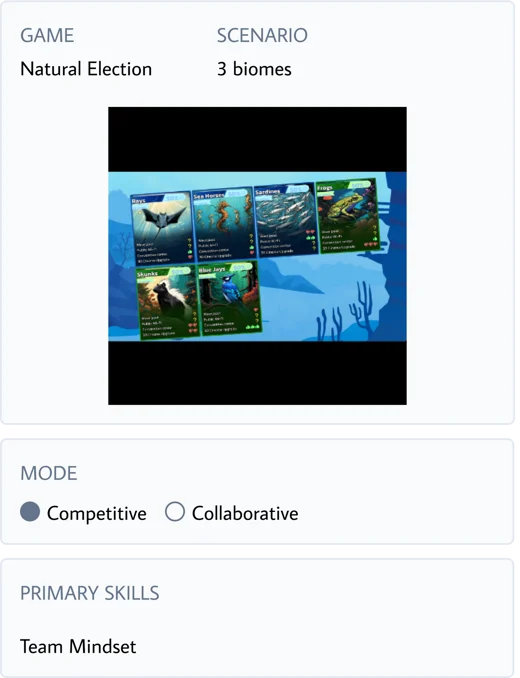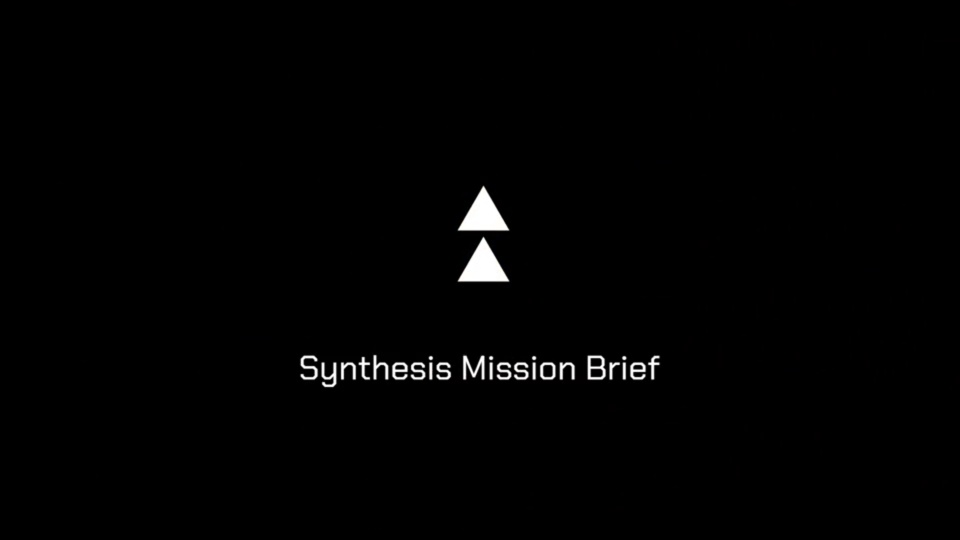本周,Synthesis 课程将通过团队游戏和讨论培养学生在乐观与悲观之间找到平衡的能力。在游戏“自然选举”中,学生们将探索如何通过有效的团队协作取得成功;而讨论环节将引导学生深入理解乐观与悲观的不同视角。同时,Tutor的新课程“点除法游乐场”为孩子们提供了自由探索除法奥秘的机会,帮助他们培养对数学的直觉性理解。
This week, Synthesis lessons focus on helping students find balance between optimism and pessimism through team games and discussions. In the game “Natural Election,” students will explore how to achieve success through effective teamwork, while the discussion session will deepen their understanding of optimistic and pessimistic perspectives. Additionally, the Tutor’s new lesson “Dot Division Playground” offers children a chance to freely explore the concepts of division, fostering an intuitive grasp of mathematical principles.
游戏 | Play
自然选举 | Natural Election
详情
在庆祝Synthesis的首批五位超级协作者的同时,值得回顾他们如何走到今天的。平均来说,他们在协作问题解决环境中完成了1000次练习,曾与来自60多个国家的600多名队友一起游戏,并在过去几个月里批判性地思考自己的成长和优势领域。大多数人经历了三轮由教练主导的面试,最后单独会见了Synthesis联合创始人Josh Dahn。这很容易吗?一点也不。可以去问问他们。但正是因为他们的承诺,这五位超级协作者建立了终身受益的有效沟通、团队合作和问题解决的强大基础。现在,是时候开始下一个五千次的努力了。本周的游戏?是自然选举,重点是乐观与悲观。游戏之上的游戏?是Synthesis,重点仍然是让您的孩子成为更好的自己。
Details
As we celebrate the first five supercollaborators of Synthesis, it’s worth looking at how they got here. On average, they’ve gotten 1000 repetitions in collaborative problem-solving environments, they’ve played with over 600 different teammates from over 60 countries, and they’ve spent the last months thinking critically about their own areas of growth and strength. Most went through three rounds of coach-led interviews before meeting individually with Synthesis co-founder Josh Dahn. Was it easy? Not at all. Just ask them. But because of their commitment, these five supercollaborators have a strong foundation of effective communication, teamwork, and problem-solving that will last the rest of their lives. Now, it’s time to work on the next five thousand. The game this week? It’s Natural Election, and the focus is optimism and pessimism. The game above the game? It’s Synthesis, and the focus, as always, is making your student a better version of themselves.

游戏:自然选举
场景:3种生态系统
模式:🟢⚪竞争 ⚪合作
主要技能:
团队心态
GAME: Natural Election
SCENARIO: 3 biomas
MODE: 🟢Competitive ⚪Collaborative
PRIMARY SKILLS:
Team Mindset
反思 | Post-play
以下是一些后续反思问题,如果您希望与您的孩子讨论这次经历的话。
Here are some follow-up reflection questions, in case you’d like to discuss the experience with your child.
- 您认为在任何团队中取得成功需要什么?无论是在Synthesis内还是外?
What do you think it takes to be successful on any team, inside or outside of Synthesis? - 在团队合作时,您倾向于更乐观还是更悲观?
Do you tend to be more optimistic or pessimistic when you work on teams?
任务简报 | Mission Brief
感兴趣的家长可以点击此视频,观看本周学生们在课程前看到的任务简报:
For the curious parent, you can watch the pre-session Mission Brief the students see this week by clicking on this video:

讨论 | Discussions
积极面对?| Look on the Bright Side?
对成年人来说,“乐观”和“悲观”是熟悉的概念,但对年幼的学生来说,这些视角更多体现在他们的沟通、行为、自信和恐惧中。因此,本周的课程旨在突出这些词本身:乐观(关注潜在的益处)与悲观(关注潜在的问题)。因为生活中既有回报也有挫折,学生需要足够的意识和灵活性,在需要时从每种视角中看问题。本周没有对错之分,只有来自世界各地孩子们的有趣对话。
The ideas of “optimism” and “pessimism” are familiar to adults, but to younger students, these perspectives are manifested in their communication, their behavior, their confidence and their fear. This week’s session, therefore, is designed to highlight the words themselves: optimism (a focus on potential benefits) and pessimism (a focus on potential problems). And because life has both rewards and setbacks, it’s important for students to be aware enough — and agile enough — to look through each perspective when needed. No right or wrong answers this week. Just interesting conversations with kids from around the world.

讨论介绍 | Discussion Intro
对于好奇的家长,您可以点击观看本周学生看到的讨论介绍视频:
For the curious parent, you can watch the pre-session Discussion Brief the students see this week by clicking on this video:

导师 | Tutor

点除法游乐场 | Dot Division Playground
我们的最新游乐场让您的孩子可以掌控“除法点”的使用。除了定制小工具空间的新选项外,他们还可以探索允许分组、拆分和复制点的新工具。通过自由设置点的总数,您的孩子可以发现新的等量组合,建立对除法更深刻和直观的理解。您可以在除法单元中找到“点除法游乐场”课程。
Our newest playground puts the power of the Division Dots in your child’s hands. Alongside new options to customize the widget space, they can also explore new tools that allow them to group, explode, and clone the dots on their own terms. With the freedom to set their own total of dots, your child can discover new combinations of equal groups, building a deeper, intuitive understanding of division. You can find the Dot Division Playground in the Division Unit.
